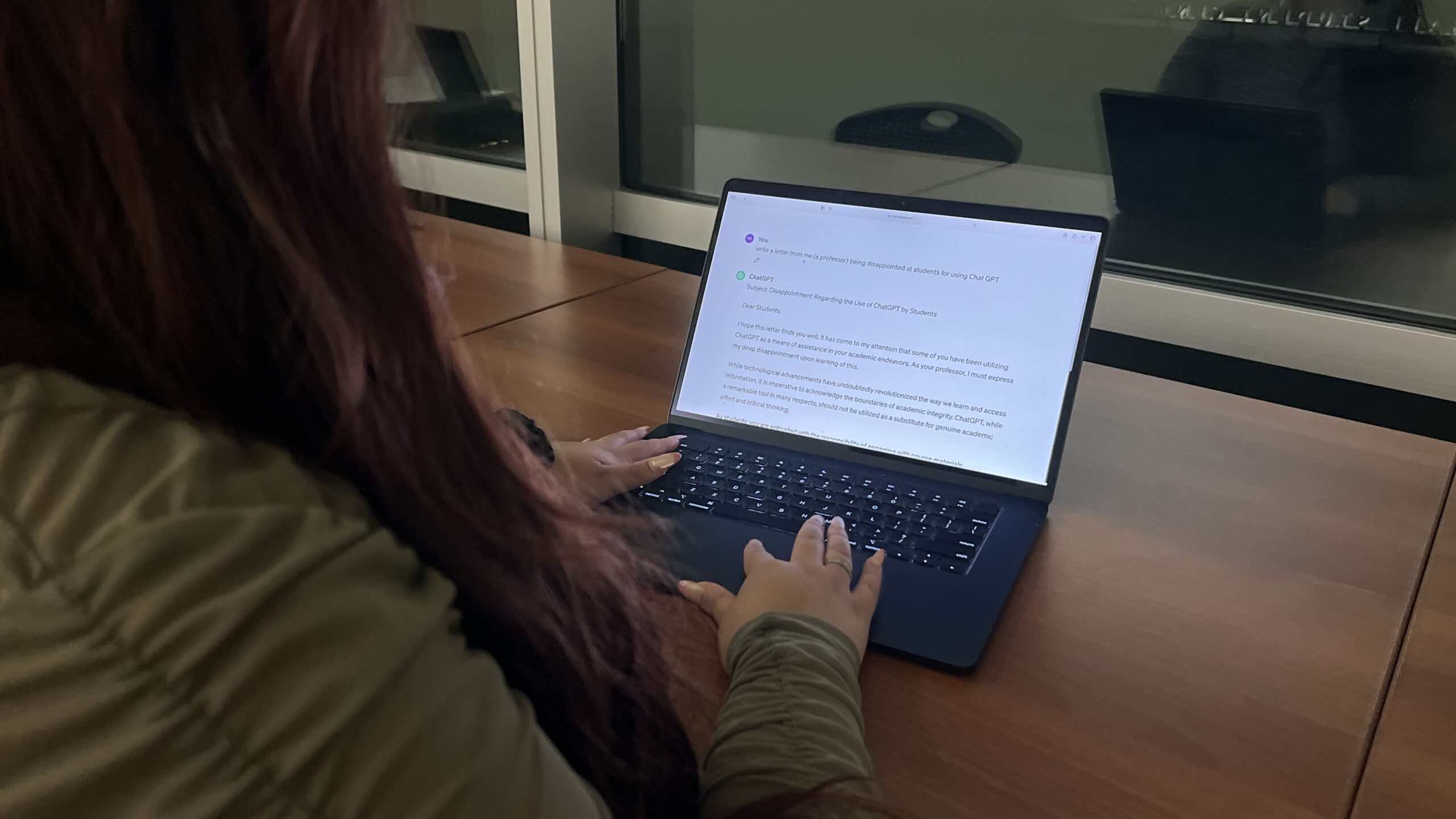OPINION: AI shouldn’t be allowed in USF classrooms

In today’s age, artificial intelligence (AI) is only getting better and more accessible, leaving professors and teachers scrambling to keep up with the new technology.
Generative AI websites such as Chat GPT, Chegg and other related technologies have grown in popularity and can easily be misused by students. Professors need to crack down on the use of AI technologies before the problem gets out of hand.
Related: ChatGPT at USF: What do professors think?
It can be easy for students to let a computer think for them. However, taking the easy way out of a homework assignment will do more damage in the long run.
“As each new version of ChatGPT gets rolled out, it gets better and better,” Steven Walczak, USF professor in the school of information, told The Oracle. “The latest versions are getting very good at communicating and in a more human-like manner.”
Generative AI, or GenAI, is any text produced by AI – usually in response to a prompt that is fed to the computer by the user. GenAI can be used by students to write essays or solve math equations.
This growing awareness of new technologies that can be used to plagiarize should prompt more professors at USF to search for solutions. A good start would be to enforce detection software that identifies when a student has used GenAI to complete an assignment.
A student may use GenAI on an assignment for many reasons: laziness, lack of understanding or creativity. By having a machine do the work, these issues will only become worse.
When professors enable the use of GenAI on assignments, much of the college experience becomes compromised. Misuse of GenAI prevents students from actually learning and developing problem solving skills, which is the main goal of attending college.
Related: Professors, students unsure whether AI software is helpful, harmful
“If a student chooses to use generative AI instead of doing the work themselves, they are short changing themselves by not learning the things that will be beneficial to them in the workplace or in life in general,” said Walczak.
Enforcing GenAI detection upon submission on Canvas will restore education to the way it was meant to be. This will encourage critical thinking skills and creativity.
Since GenAI technologies cannot be used by students on tests or midterm essays, it also should not be used on other graded assignments. Using it during homework will actually prevent students from getting a concrete understanding of class material.
Walczak said that implementing anti-AI policies should be up to the professor and that it should be written out in the class syllabus.
While this is a good start to preventing the use of GenAI, it will not do enough to ensure that it is not used for plagiarism.
Letting GenAI be submitted on Canvas without penalty is the kind of leniency that leads to a lack of motivation amongst students.
When students become reliant on technology to read and write for them, they miss out on the aspect of college that is supposed to instill a hard work ethic.
Professors can combat the threats that generative GenAI poses to education by utilizing tools that detect it upon submission.
Software such as Turnitin and GPTZero are helpful tools that are currently in place to help professors ensure that all work submitted is one of a kind. Just as students are utilizing the tools at their fingertips, teachers also need to change with the times and enforce tools that are available to them.
Requiring AI scanners on Canvas will bear the burden of eliminating these technologies in places it does not belong – the classroom.
“AI itself is neither good nor bad,” said Walczak. “It’s a tool. And of course anytime there is a creative tool, there are always some people who will take advantage of it for non-intended purposes.”
USF has published guidelines for the appropriate use of AI technologies. The use of GenAI is well known in the education sphere, but policies at USF are not doing enough to prevent the abuse of it.
Using plagiarism software on Canvas will incentivize and motivate USF students to complete their own work. The lack of monitorization of GenAI use on assignments leaves student’s futures in the hands of computers.
If professors take action now, it will put an end to the mishandling of educational technologies that are meant to help society, not harm it.







